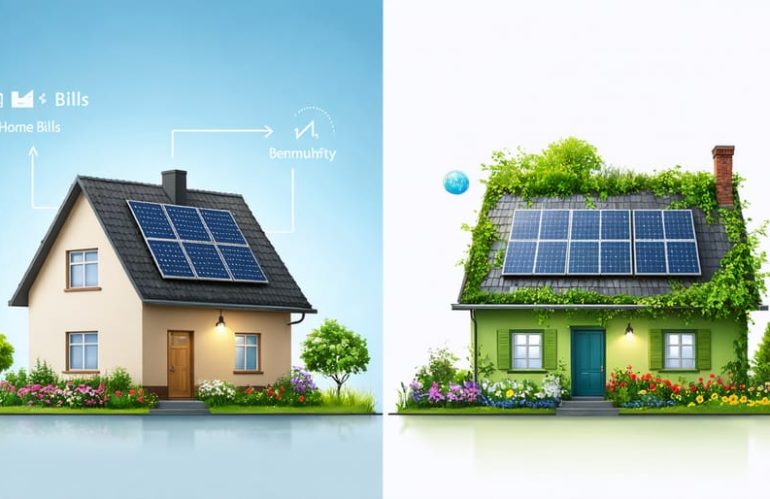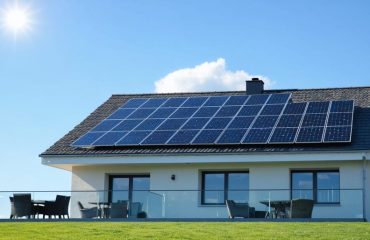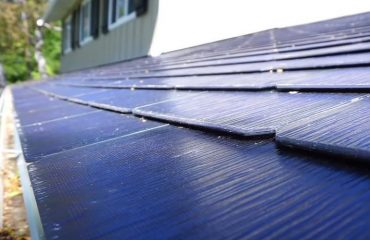Non-profit solar companies are revolutionizing access to clean energy by making the benefits of residential solar power available to more homeowners than ever before. Unlike traditional solar installers focused on maximizing profits, these mission-driven organizations prioritize community impact and environmental sustainability while delivering significant cost savings to homeowners.
Operating with lower overhead costs and reinvesting surplus funds into community projects, non-profit solar providers typically offer installation prices 15-30% below market rates. Their unique business model combines the technical expertise of commercial installers with the transparent, community-focused approach of a charitable organization. This provides homeowners with both financial advantages and the assurance that their investment supports local environmental initiatives.
By choosing a non-profit solar installer, homeowners join a growing movement that transforms individual energy decisions into collective environmental impact. These organizations often provide enhanced customer support, flexible financing options, and ongoing education about renewable energy – creating a partnership that extends far beyond the initial installation.
The Non-Profit Solar Advantage
Mission-Driven vs Profit-Driven
The fundamental difference between non-profit and for-profit solar companies lies in their core motivations and business models. Non-profit solar organizations prioritize community benefit and environmental impact over financial gains, often leading to more favorable pricing for homeowners. Without the pressure to generate profits for shareholders, these organizations can offer solar installations at reduced costs, typically 15-20% lower than traditional solar companies.
This mission-driven approach also influences customer service quality. Non-profit solar providers tend to focus on education and long-term sustainability rather than quick sales. They’re more likely to spend time helping homeowners understand their energy needs, explaining available options, and ensuring the chosen solar solution truly fits their situation.
For-profit companies, while still providing valuable services, must balance customer needs with profit margins. This can sometimes result in higher pressure sales tactics or recommendations for larger systems than necessary. In contrast, non-profit solar organizations often operate with greater transparency, offering detailed breakdowns of costs and maintaining consistent pricing structures.
Moreover, non-profit solar providers frequently reinvest any surplus funds into community programs or use them to further reduce installation costs for future customers, creating a cycle of sustainable benefits for the community.
Community-Focused Installation Programs
Non-profit solar companies excel at creating innovative programs that make solar energy accessible to everyone in the community. These organizations often partner with local governments, community centers, and other non-profits to develop initiatives that specifically target underserved neighborhoods and low-income households.
One popular approach is the “solar bulk-buy” program, where multiple households in a community join together to purchase solar systems at discounted rates. This collective buying power helps reduce installation costs significantly for all participants. Many non-profits also offer solar education workshops, teaching residents about renewable energy benefits and helping them make informed decisions about their energy future.
Income-based installation programs are another cornerstone of community-focused initiatives. These programs often feature flexible payment plans, reduced upfront costs, and special financing options for qualified households. Some organizations even provide complete solar installations at no cost to families meeting specific income criteria.
Job training programs represent another vital community benefit, offering local residents valuable skills in the growing solar industry. These initiatives typically include both classroom instruction and hands-on installation experience, creating pathways to sustainable employment while building community expertise in renewable energy technology.

Financial Benefits for Homeowners
Reduced Installation Costs
One of the most significant advantages of working with a non-profit solar company is the substantial reduction in installation costs. Unlike traditional solar companies that need to generate profits for shareholders, non-profit organizations can focus on their mission to maximize installation efficiency and savings for homeowners.
These organizations typically operate with lower overhead costs and can pass these savings directly to homeowners. By eliminating profit margins and utilizing various funding sources, including grants and donations, non-profit solar companies often reduce installation costs by 15-30% compared to for-profit competitors.
Additionally, non-profit solar companies frequently partner with manufacturers and suppliers to secure bulk pricing on equipment. These partnerships, combined with their tax-exempt status, enable them to offer high-quality solar systems at more affordable rates. Many non-profits also have access to special financing programs and can help homeowners navigate available tax incentives and rebates.
The cost reduction doesn’t come at the expense of quality or service. Non-profit solar companies maintain high installation standards while prioritizing community benefit over financial gain. They often employ certified professionals and use the same top-tier equipment as traditional solar companies, ensuring homeowners receive reliable, long-lasting solar solutions without the premium pricing.
Grant and Funding Opportunities
Non-profit solar companies often have access to unique funding opportunities that can make solar installations more affordable for homeowners. Many organizations partner with government agencies, charitable foundations, and environmental groups to secure grants and financial assistance programs for their clients.
The Solar Energy Technologies Office (SETO) offers competitive funding opportunities that non-profit solar companies can leverage to reduce installation costs. These grants often focus on innovative solar projects that benefit low-to-moderate-income communities and promote clean energy adoption.
Local community foundations frequently provide matching grants to non-profit solar organizations, effectively doubling the impact of individual donations and reducing costs for homeowners. Additionally, many states offer specific incentives for working with non-profit solar installers, including tax credits and rebates.
Environmental protection organizations and sustainability-focused foundations regularly award grants to non-profit solar companies committed to reducing carbon emissions and promoting renewable energy. These funds often translate into direct savings for homeowners choosing to go solar.
Some non-profit solar companies also participate in crowd-funding campaigns and community solar initiatives, allowing multiple donors to contribute to specific installation projects. This collective approach helps make solar energy accessible to more households while building community support for renewable energy adoption.
Before starting your solar project, ask potential non-profit installers about their current grant programs and funding partnerships. Many organizations have dedicated staff members who can help you identify and apply for available financial assistance opportunities.
Quality and Service Standards
Equipment Selection Process
Non-profit solar companies take a methodical approach to equipment selection, prioritizing quality and long-term value over profit margins. These organizations typically partner with reputable manufacturers who offer warranties of 25 years or more on their solar panels and inverters. They focus on equipment that balances performance, durability, and cost-effectiveness to maximize benefit for homeowners.
The selection process usually involves rigorous testing and evaluation of various solar components. Many non-profits work with independent laboratories to verify manufacturer claims and ensure equipment meets strict performance standards. They often choose tier-1 solar panels from established manufacturers, which offer the best combination of efficiency and reliability.
Quality inverters are another crucial consideration, as these components convert solar energy into usable electricity for homes. Non-profits typically select microinverters or power optimizers that maximize energy production and provide detailed monitoring capabilities.
Energy storage solutions are also carefully evaluated, with many organizations offering battery options that align with their mission of energy independence and grid resilience. The equipment selection process emphasizes sustainable manufacturing practices and responsible sourcing, ensuring that the environmental benefits extend beyond just clean energy generation.
Through bulk purchasing agreements and industry partnerships, non-profits can often secure high-quality equipment at better prices than traditional solar companies, passing these savings directly to homeowners.
Installation and Support Services
When you partner with a non-profit solar company, you’ll experience a streamlined solar installation process backed by expert support every step of the way. The journey begins with a thorough home assessment and customized system design that maximizes your energy production potential. A dedicated project manager guides you through permitting, scheduling, and installation coordination, ensuring a smooth experience.
Installation typically takes just 1-2 days, performed by certified technicians who adhere to the highest quality and safety standards. After installation, the team conducts rigorous testing and helps activate your system, walking you through its operation and monitoring features.
What sets non-profit solar companies apart is their commitment to long-term support. You’ll receive comprehensive warranty coverage, regular system performance checks, and access to responsive customer service. Many organizations offer educational resources and energy-saving tips to help maximize your investment. If issues arise, their maintenance teams provide prompt, professional service to keep your system running optimally.
Most importantly, these organizations remain available long after installation, offering guidance on system upgrades, energy efficiency improvements, and answering any questions that may arise during your solar journey.
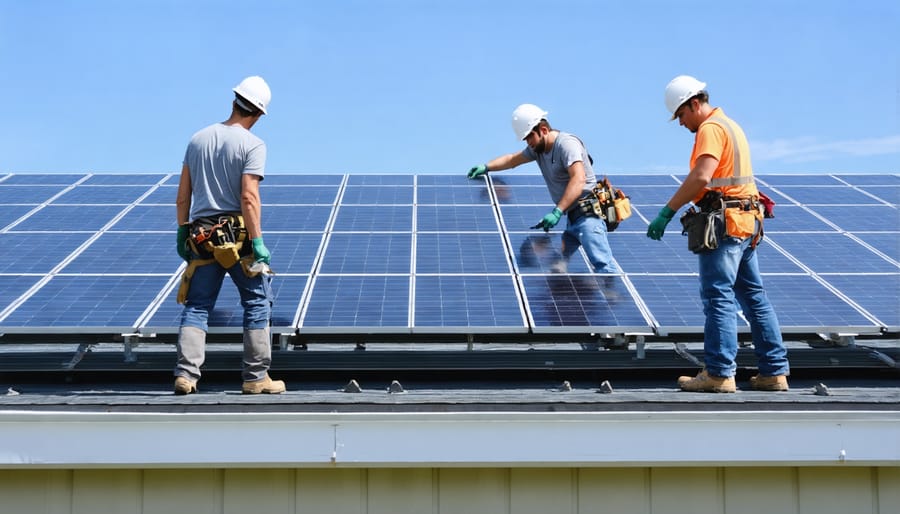
Making the Switch
Finding Local Non-Profit Providers
Finding a local non-profit solar provider can be accomplished through several reliable methods. Start by checking with your state’s solar energy association or renewable energy office, as they often maintain directories of registered solar organizations, including non-profits. The Database of State Incentives for Renewables & Efficiency (DSIRE) website is another valuable resource that can connect you with local providers.
Community organizations and environmental groups frequently partner with non-profit solar companies, so reaching out to these entities can lead you to reputable providers. You can also search online using terms like “solar non-profit” or “community solar initiative” along with your location to find organizations operating in your area.
Once you’ve identified potential providers, evaluate them thoroughly. Review their track record, including completed installations and community impact. Look for organizations that are properly licensed, insured, and certified by relevant authorities. Make sure to read testimonials from previous clients and ask for references.
Before committing to any provider, it’s essential to understand their specific model and offerings. Some non-profits focus on education and advocacy while installing solar systems, while others concentrate purely on installation services. Be sure to review their questions to ask solar providers about their installation process, warranty terms, and post-installation support.
Consider attending local sustainability fairs or renewable energy events where these organizations often showcase their work. This provides an opportunity to meet representatives face-to-face and better understand their mission and capabilities.
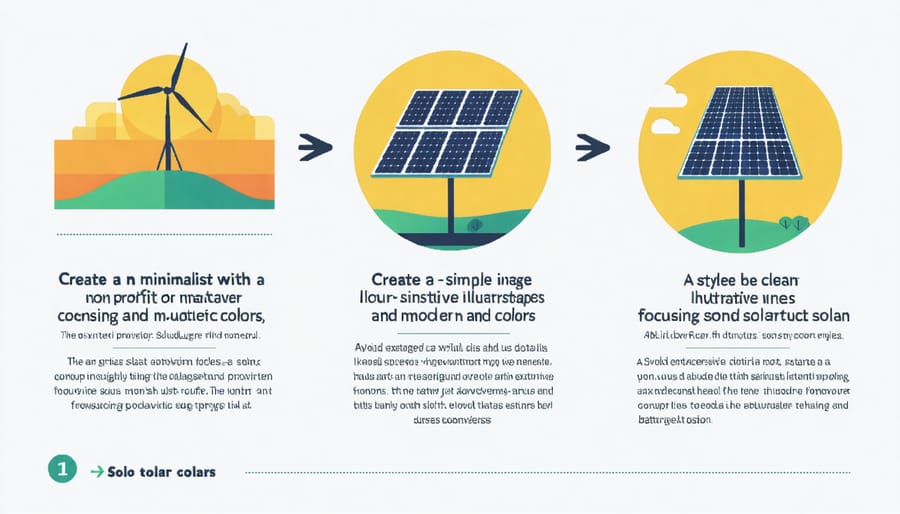
What to Expect in the Process
Working with a non-profit solar provider follows a straightforward process designed to make your transition to solar energy as smooth as possible. The journey typically begins with a free consultation where the organization evaluates your home’s solar potential and discusses your energy needs and goals.
Next, their team conducts a detailed site assessment, examining your roof condition, sun exposure, and electrical system. They’ll use this information to design a custom solar system that maximizes your energy production while staying within your budget. Unlike commercial providers, non-profit solar organizations focus on finding the most cost-effective solution for your specific situation.
During the planning phase, the organization will help you understand available incentives, tax credits, and financing options. They often have partnerships with local credit unions or offer special financing programs to make solar more accessible. You’ll receive a comprehensive proposal outlining system specifications, expected energy production, and projected savings.
Once you approve the design, the organization handles all necessary permits and paperwork. They coordinate with local authorities and your utility company to ensure compliance with regulations. Installation typically takes 1-2 days, performed by certified technicians who follow strict safety and quality standards.
After installation, the organization provides system testing and guides you through operation and monitoring. Many non-profit solar providers offer ongoing support and maintenance services to ensure your system performs optimally. They’ll also help you understand your new energy bills and how to maximize your solar investment.
Throughout the process, you’ll receive educational resources and support from a team committed to advancing clean energy in your community, rather than maximizing profits.
Non-profit solar companies represent a powerful shift in how we approach renewable energy adoption, offering a unique combination of environmental stewardship and financial benefits. By choosing a non-profit solar provider, homeowners can access solar energy solutions at reduced costs while supporting organizations dedicated to community development and environmental sustainability.
These organizations have demonstrated that solar power doesn’t have to come with a hefty price tag or complicated contracts. Their commitment to transparency, education, and community service has made solar energy more accessible to diverse populations, breaking down traditional barriers to adoption.
The benefits extend far beyond individual cost savings. Non-profit solar companies often reinvest their revenues into community projects, educational programs, and further solar initiatives, creating a positive cycle of sustainable development. Their work has helped countless families reduce their carbon footprint while enjoying significant reductions in their monthly energy bills.
As we move toward a more sustainable future, non-profit solar companies continue to play a crucial role in democratizing access to clean energy. Whether you’re motivated by environmental concerns, interested in reducing your energy costs, or simply want to support community-focused initiatives, non-profit solar providers offer a compelling alternative to traditional solar companies.
Consider reaching out to a non-profit solar organization in your area to learn more about their programs and how they can help you transition to clean, renewable energy while making a positive impact in your community.

